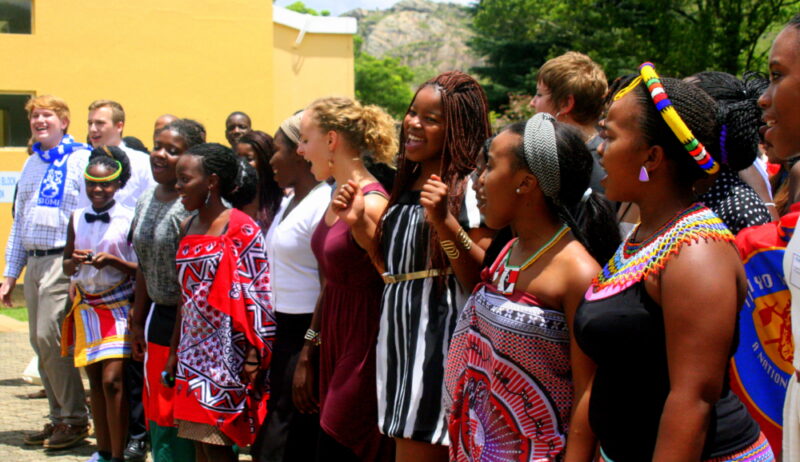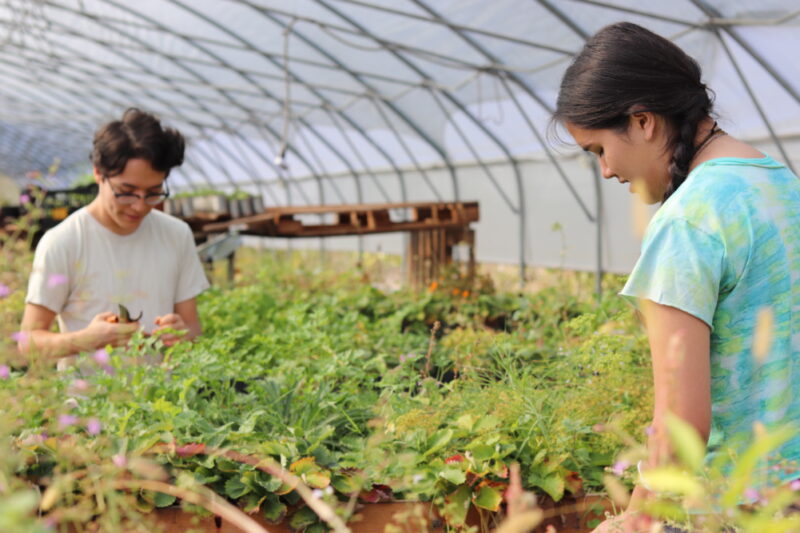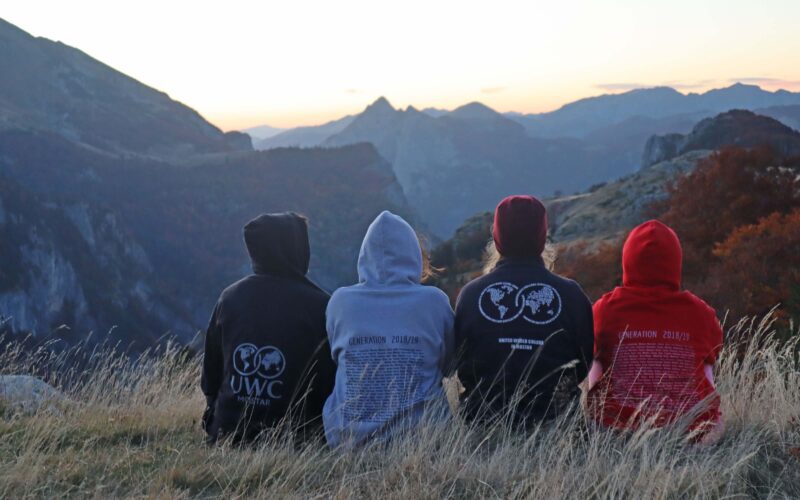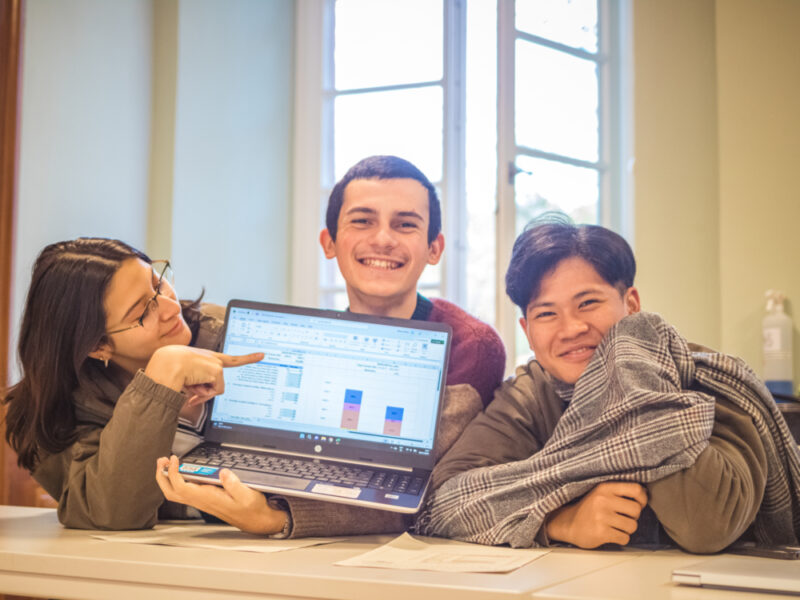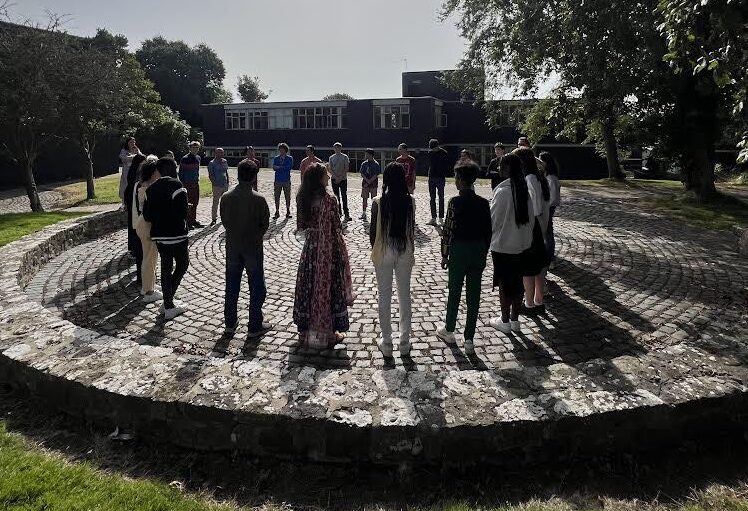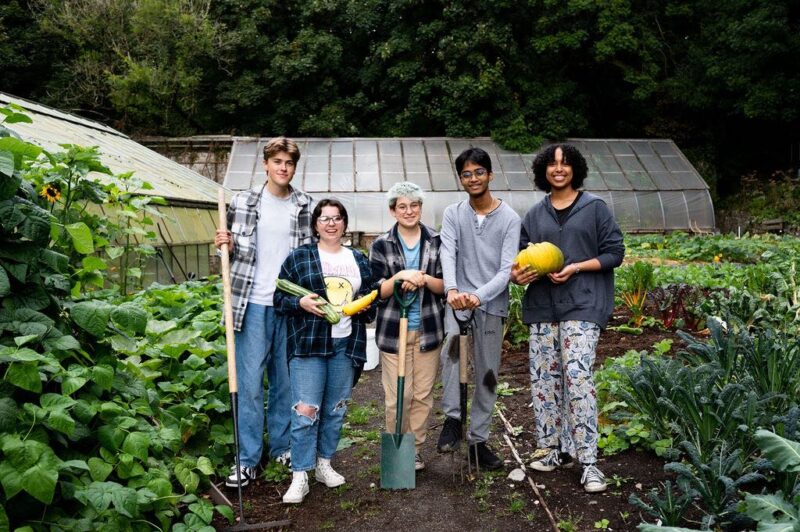UWC Atlantic
Sustainability is central to UWCA life and decision making. In 2022 the role of Director of Operations was expanded to include responsibility for matters of campus sustainability and the new job title makes this responsibility clear to all. This means that the person responsible for delivering improvements and innovations in sustainability for our campus and operations is involved in all leadership and board meetings and decision making. The new 10 year strategy for UWCA is built on 4 pillars, one of which is that we will build a sustainable home through our connection to the natural and built environment. This strategic plan commits UWCA to the goal of achieving a 50% reduction in carbon emissions by 2032 and net zero by 2040. These ambitious targets will require UWCA to be bold and committed in addressing the emissions from our heating and energy systems and the demand for energy from our buildings, both new and very old.
Sustainability is uppermost in the thought process behind many day to day aspects of UWCA life. We operate a number of electric vehicles, have invested in several renewable energy projects and, when refurbishing our buildings invest in insulation to reduce the future energy demand. Our Valley growing area produces food for the college kitchens and our student sustainability council, SusCo, is passionate, dynamic and delivering real change to UWCA. Annually, we calculate our carbon footprint, including scopes 1, 2 and 3 emissions.
The future for sustainability at UWCA is an exciting one and presents opportunities for real change. We are currently working on significant future projects for a large solar field and a radical overhaul of our heating systems to reduce our dependence on fossil fuels. We have some significant infrastructure challenges to overcome on this journey but with focus, determination and a will to enact change will meet these and advance our journey to net zero.
Our new educational vision also places sustainability at the forefront of teaching and learning. We developed a bespoke academic pathway in a groundbreaking partnership with the International Baccalaureate, launching with a pioneer cohort of 25 students in August 2023. Our Systems Transformation Pathway within the IBDP centers what it means to educate for just futures, for collective liberation, for mutual thriving of people and planet. In the place of two Standard Level subjects, students will take a 14-point course where they will learn and practice how to initiate systems-level interventions in the sustainability-related impact areas of Food, Energy, Biodiversity, and less obviously, Migration. This program will not only reshape our campus into an action lab for transformative change, but promises to place sustainability-focused and action-oriented learning firmly at the core of what a UWC and IB education looks like in the future.

